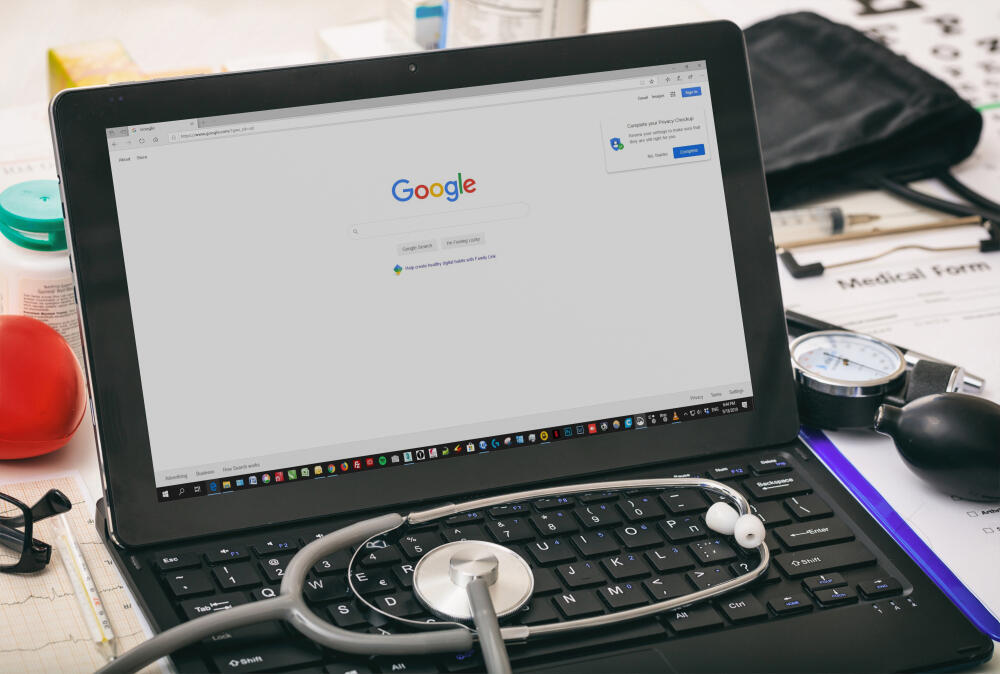Getting your Trinity Audio player ready...
Avi (not his real name), a 36-year-old electrical engineer, husband, and father, was once a content and happy man, enjoying time with his children and connecting with colleagues at work. However, two years ago, he began experiencing unfamiliar sensations in his chest. Concerned, he visited his family doctor, who ordered a series of tests that all came back normal. Despite reassurances from another doctor that he was in good health, Avi remained worried.
Over the next two years, Avi grappled with persistent negative thoughts and daily concerns such as, "What if the doctors missed something?" and "Maybe my condition is so rare that they can't diagnose it." As these thoughts intensified, they overtook his rational thinking, leading to constant anxiety and restlessness. His symptoms, which he attributed to an undiagnosed medical issue, included difficulty concentrating, fatigue, occasional rapid heart rate, irritability, muscle tension, frequent trips to the bathroom, and poor sleep. As his anxiety deepened, Avi became hyper-aware of every minor bodily change, interpreting these as signs of a serious, undetected illness.
Rather than returning to his doctor, Avi, having lost trust in medical professionals who found no issues, avoided further consultations out of fear of receiving bad news. This behavior aligns with health anxiety, a condition affecting about 10% of those with similar concerns.
In his spare time, and often impulsively during work or on weekends, Avi turned to the internet, specifically "Dr. Google," to diagnose himself with various serious illnesses. Each self-diagnosis only deepened his fears, as he lacked the expertise to confirm or dismiss these conditions without proper medical consultation.
Avi also struggled with troubling memories from his youth. At 16, his mother was diagnosed with cancer, but after several months, she made a full recovery and has lived a healthy life since. Yet, Avi fixated on the difficult period of her illness, seemingly forgetting her courageous recovery. He took these memories as further evidence that his own health was in grave danger and that he was destined for prolonged suffering.
Throughout these two stressful years, Avi sought daily reassurance from his wife and family, sharing his self-diagnoses and presenting them with medical articles, seeking comfort despite their lack of medical expertise. However, the more he involved his family, the more his anxiety worsened, providing only temporary relief while also causing distress among his loved ones.
At his wife’s urging, Avi eventually sought psychological consultation. "I’ve never felt I had psychological issues; my life has been good except for these persistent worries," he explained during their first session, expressing embarrassment over seeking help for what he perceived as a purely medical problem.
Why do people with health anxiety avoid seeking help?
I’m not a hypochondriac: Many people with health anxiety are labeled by their families as hypochondriacs or "imaginary invalids." This term not only offends those struggling with health anxiety but also trivializes the issue, turning it into a family joke. This negative label misses the core of the problem. In modern DSM (Diagnostic and Statistical Manual of Mental Disorders) terminology, hypochondria is now recognized as health anxiety—a specific type of anxiety focused on the individual's intense and debilitating fears of having a serious illness.
Secondary gain: Classic psychological approaches often attribute hidden (unconscious) motivations to those suffering from health anxiety, suggesting that they "want to be sick to gain closer, more intimate attention from loved ones." This concept of secondary gain also implies that these individuals might be manipulative, seeking benefits like financial aid or reduced responsibilities at home or work. Such views overlook the significant suffering experienced by those with health anxiety and may encourage loved ones to dismiss their mental struggles, wrongly attributing them to immaturity or manipulative intentions. While such cases are documented in professional literature, they are extremely rare. It's important to understand that those with health anxiety suffer greatly and want to feel better if they only knew how.
Psychological issues affecting physical health: People often receive vague messages that their physical sensations symbolize something "deeper." For example, stomach issues might be said to represent difficulties in digesting life’s challenges, chronic fatigue could be labeled as avoidance or laziness, and some patients have been told that their vision problems symbolize an unwillingness to see reality. While these ideas may be interesting or creative, the scientific evidence behind them is not strong and is generally not accepted in modern medicine or psychology.
Fear of discovering a serious illness: One of the most common blessings in our culture is "good health." We are constantly surrounded by messages urging us to improve our appearance and health, yet our bodies endure significant physical and mental strains, especially these days. Sometimes, this imbalance leads to people avoiding mental health care when they feel unwell, fearing that they might receive a severe mental or physical diagnosis. Their anxiety is so intense that they believe every sensation must indicate a serious illness, either physical or mental.
"It’s all psychosomatic": Like other scientific fields, psychology also suffers from the use of charged and not always clear terms. The belief that a person’s mental struggles manifest in physical symptoms is familiar to us all. We certainly feel the direct, two-way connection between our body and mind. However, the belief that physical sensations stem solely from deep psychological issues and that one needs long-term therapy to uncover the connection between mind and body can prevent people from seeking targeted treatment for the identifiable psychological and physical symptoms that can be treated.
 Dr. Michael Ziv Or
Dr. Michael Ziv OrWhy is it important to seek consultation?
It's crucial to have an initial consultation with psychologists who specialize in treating health anxiety. After the first meeting, which involves a comprehensive psychological evaluation, patients often feel more comfortable considering the possibility that the physical sensations they are experiencing may also result from simple, understandable psychological mechanisms.
Patients quickly learn that the intensity and experiences of their sensations are also linked to their psychological responses. It's important to note that the most effective treatment for health anxiety is cognitive-behavioral therapy (CBT) with expert psychologists and therapists.
What happens during treatment?
Psychological treatment typically lasts between 10 to 16 sessions, during which patients learn focused techniques and strategies. Patients with diagnosed medical conditions, as well as those experiencing unexplained physical symptoms (after thorough examination), can benefit from psychological treatment focused on health anxiety. The diagnosis of "unexplained medical issues" often includes challenges such as chronic pain, sleep disorders, irritable bowel syndrome, overactive bladder, unexplained chest pain, or chronic fatigue.
The treatment involves practicing daily tasks to develop a more appropriate psychological response. It's important to understand that the treatment does not aim to convince individuals that their sensations are unfounded, but rather to help them learn that their responses to these sensations often amplify and excessively threaten their well-being. Treatment for health anxiety is most effective when the individual has been evaluated by a primary care physician and/or medical specialists, and it often involves ongoing communication between the treating parties.
- The author is a clinical psychologist, a supervisor in cognitive-behavioral therapy, and a lecturer in the master's program in Family Studies at the College of Management Academic Studies.



